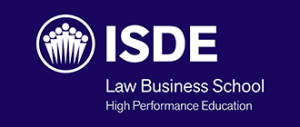Hello everyone!
i am a China Patent Attorney. I started my IP career with one of the top 7 Patent Agency of China in 2006, and qualified as as Lawyer in 2005 and patent attorney in 2006.
Up to now, I has handled about 100 new patent applications, 200 office actions. I has much experiences in the patent reexamination, invalidation and Patent and trademark litigations.
The clients include Honda, Oerlikon Saurer, Dior, fairfield, LG etc.
I want to choose a law school and then work in us, to help US company handle china IP issues and help China company handle US IP issues, please help me think about it.
Thank you very much!
Chance of China IP lawyer work in US?
Posted Jun 14, 2013 14:21
i am a China Patent Attorney. I started my IP career with one of the top 7 Patent Agency of China in 2006, and qualified as as Lawyer in 2005 and patent attorney in 2006.
Up to now, I has handled about 100 new patent applications, 200 office actions. I has much experiences in the patent reexamination, invalidation and Patent and trademark litigations.
The clients include Honda, Oerlikon Saurer, Dior, fairfield, LG etc.
I want to choose a law school and then work in us, to help US company handle china IP issues and help China company handle US IP issues, please help me think about it.
Thank you very much!
Posted Jun 14, 2013 19:06
The legal job market in the US is still pretty bad. There are a lot of US JD graduates that are having problems finding legal work. US JDs typically get preference when it comes to hiring, unless the international candidate is really extraodrinary (grades, schools, experience, languages, etc.)With that being said, patent law is one of those legal areas where there are a fair amount of openings, and international students, with relevant background/experience/command of important languages, have a shot at landing a work.
It does help if you have an undergraduate degree in electrical/mechanical/computer engineering, computer science, or a hard science like biochemistry. An advanced degree, like a master's or Ph.D. is even better, especially in subjects like chemistry, biology, physics. All my friends that practice patent law have either an angineering degree or some advanced degree in a field like biochemistry. Also, if you have the patent bar, that is a big plus to have on the resume, although it is not necessary to have it in order to land a job. Languages always help an applicant, especially Chinese, Korean, Japanese. And, of course, work experience is invaluable.
I'd say, if you have, in addition to your work experience and being fluent in Chinese, educational background in engineering/sciences, I think you would be a competitive candidate.
As far as LL.M. programs are concerned, Berkeley and Stanford are THE best for IP (they are also, overall, top notch law schools), not to mention that both are in the vicinity of Silicon Valley. Santa Clara, although not as highly ranked overall, is considered one of the best law schools for IP law, along with Stanford and Berkeley, and has a very robust curriculum. It is ranked #3 in the country. It is no surprise as it is located in Silicon Valley.
American University and George Washington University also enjoy a strong reputation in IP law and they are located in Washington, DC, home of the US Patent and Trademark Office. Other schools worth looking into, that have a strong reputation in IP, are NYU, Michigan, Duke, Boston University, and U of Houston. People may be surprised by U of Houston, but Houston is home to many tech and biomedical firms (Houston has the largest medical center in the world) hence the IP work.
It does help if you have an undergraduate degree in electrical/mechanical/computer engineering, computer science, or a hard science like biochemistry. An advanced degree, like a master's or Ph.D. is even better, especially in subjects like chemistry, biology, physics. All my friends that practice patent law have either an angineering degree or some advanced degree in a field like biochemistry. Also, if you have the patent bar, that is a big plus to have on the resume, although it is not necessary to have it in order to land a job. Languages always help an applicant, especially Chinese, Korean, Japanese. And, of course, work experience is invaluable.
I'd say, if you have, in addition to your work experience and being fluent in Chinese, educational background in engineering/sciences, I think you would be a competitive candidate.
As far as LL.M. programs are concerned, Berkeley and Stanford are THE best for IP (they are also, overall, top notch law schools), not to mention that both are in the vicinity of Silicon Valley. Santa Clara, although not as highly ranked overall, is considered one of the best law schools for IP law, along with Stanford and Berkeley, and has a very robust curriculum. It is ranked #3 in the country. It is no surprise as it is located in Silicon Valley.
American University and George Washington University also enjoy a strong reputation in IP law and they are located in Washington, DC, home of the US Patent and Trademark Office. Other schools worth looking into, that have a strong reputation in IP, are NYU, Michigan, Duke, Boston University, and U of Houston. People may be surprised by U of Houston, but Houston is home to many tech and biomedical firms (Houston has the largest medical center in the world) hence the IP work.
Posted Jun 15, 2013 04:47
Tristan:Thanks a lot for your kind and valuable reply!
I have an undergraduate degree in communication and a graduate degree of Law in China. I have both the patent bar of Sipo and bar of China court.
But my Toefl score is not high, I will spend more time to improve
my english.
I have an undergraduate degree in communication and a graduate degree of Law in China. I have both the patent bar of Sipo and bar of China court.
But my Toefl score is not high, I will spend more time to improve
my english.
Posted Sep 21, 2013 00:35
Hi, Tristan's answer is very comprehensive and I second everything he said. I just want to expand on what he said about U of Houston. Although it is not your typical brand-name school, if your priority is to get a job in the U.S., it is actually your safest bet. Reasons being (1) it is easier to get in (2) the legal job market in Texas is one of the few that are growing, and there is less competition among foreign lawyers there (most foreign lawyers apply to firms in California and NY). I think you can take the Texas bar with an LLM because you have more than 5 years of practice in your home country. Moreover, there is a demand for bilingual lawyers there, given their growing Chinese community and business with China. However, Texas firms are notorious for preferring Texas grads. It is University of Texas, U of Houston, and SMU, then Harvard. Almost nothing in between, unless top-14 and have ties in Texas (e.g. grew up there or did undergrad in Texas), thus necessitating an LLM in a Texas school. Good luck!
Related Law Schools
Other Related Content
Aiming for the US Bar Post-LLM? Don’t Miss This Event
News Jan 15, 2024
Heading East: LL.M. Programs in Chinese Business Law
Article Mar 17, 2015
Some law schools are beginning to offer specialized LL.M. programs to help lawyers navigate Chinas emerging role in the global economy
Hot Discussions
-
Stanford 2024-2025
Nov 07, 2024 35,117 117 -
Oxford 2025-2026 BCL/MSCs/MJUR/MPHIL/MLF
Nov 15, 2024 2,105 44 -
NUS LLM 2024-25 Cohort
Oct 25, 2024 5,863 34 -
MIDS - 2024-25
Nov 15, 2024 1,847 16 -
NUS LLM cohort 2025/26
Nov 17 05:40 PM 481 5 -
LL.M. Scholarship Rates?
Nov 09, 2024 2,509 5 -
EU citizen barred in the US -- will an LLM from an EU school help me practice law somewhere in the EU?
Nov 15, 2024 143 4 -
NUS vs Peking
Nov 09, 2024 188 4





